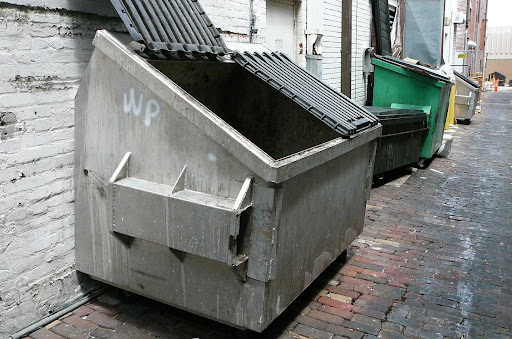fIt is not yet time for Bernard Arnault to resign. Just last spring, at the LVMH (Louis Vuitton Moët Hennessy) annual general meeting, he tabled a motion to increase the maximum age of the CEO in the company statues from 75 to 80 years – and received a clear approval of more than 80 percent of those entitled to vote. So Arnault will remain on the throne of the luxury goods group for quite a while.
He’ll be 74 next March, and his public appearances don’t suggest he’s too quick to pass the reins on to one of his five children. Ranging in age from their mid-20s to late 40s, they all hold key management positions in the LVMH empire. Anyone who could succeed their father is always a topic of conversation in Paris. If it’s already decided, it’s a well-kept secret.
It is not surprising that the shareholders let Arnault do as he pleases. The inheritance of a real estate entrepreneur has systematically formed LVMH into a global empire with meanwhile 75 fashion, leather, wine, spirits, watch and jewelry brands and more than 180,000 employees, whose stock market value has increased almost twenty-fold in the past 20 years. With around 365 billion euros, LVMH is worth more than any other European company. 12 billion euros in net profit with 64.2 billion euros in sales were added last year.
broken porcelain
Last but not least, Arnault himself benefits from this. He and his family hold around 47.8 percent of the capital and 63.5 percent of the voting rights of LVMH. Together with other investments, this results in an estimated fortune of around 161 billion euros, the financial service Bloomberg has calculated – which, since the shares of Tesla founder Elon Musik have been on a downward slide for a few weeks, currently makes Arnault the richest person in the world. It was already for a short time in May last year. Now he could stay longer at the top.
This is supported by the stability that Arnault cultivates at LVMH. Distinguished by nature and fundamentally different from Musk, the Frenchman, whose second marriage is to Canadian concert pianist Hélène Mercier, prefers to visit his own boutiques at weekends and shuns the limelight of the cameras. Arnault is also considered a rough-necked businessman. When buying and selling companies, he certainly smashed up Porzellan.
The takeover battle for the Italian luxury brand Gucci, which was ailing in the 1990s, is legendary. In the end, it was won by his archenemy François Pinault, founder and long-time CEO of PPR (today Kering). Or his brusque attempt to take over the French leather goods specialist Hermès, which upset the owner family. At the same time, however, Arnault, who was born in the northern French industrial city of Roubaix and trained at the French elite university for engineers, is a meticulous and disciplined architect of his own entrepreneurial fortune, which began in the luxury world with the purchase of the Christian Dior fashion house in the 1980s.
The strong presence turned out to be spot on
“You’re part of a family business that thinks long-term,” Arnault told his employees earlier this year as he opened a new atelier in the small French town of Vendôme. Companions also refer to this long-term business policy as an explanation for the success. LVMH deliberately does not publish financial figures on the ups and downs of the individual brands. Rather, the requirement is to give each company its time to develop high-quality and at the same time durable products and to always create the right symbiosis between designer and managing director, whether at the dominant fashion brand Louis Vuitton, the watch manufacturer Tag Heuer or the recently acquired Cologne-based suitcase manufacturer Rimowa .
Other factors shed light on Arnault’s business success in the world of beauty and refinement. For example, having a feel for the right manager, who often stays with the group for a very long time. Or that of not outsourcing the distribution of big-brand products to outside companies and franchisees. So if you are looking for Louis Vuitton handbags in Paris’ Galeries Lafayette, you will also find employees of the LVMH group there. The same applies to the boutiques in other parts of the world. With the exception of the distribution of spirits such as cognac and champagne from the LVMH houses such as Hennessy and Dom Perignon, Arnault’s group cooperates little with other companies.
Arnault also understood earlier than others the potential for growth that lay dormant in the Far East. Many thought he was crazy when he opened his first boutique in Beijing in the 1990s. Today, the group generates 32 percent of its sales in Asia, plus Japan 39 percent. The strong local presence has proven to be spot on since the outbreak of the corona pandemic at the latest. In one fell swoop, Chinese tourists broke away as customers in Parisian boutiques and the LVMH department store La Samaritaine, in the Far East they stayed.
Arnault is often courted by politicians in his native France, as he employs 36,000 people there alone and pays a lot of taxes to LVMH. His image as a model entrepreneur is rarely questioned publicly, and certainly not by media houses such as Les Echos, Challenges and Le Parisien, which he has successively joined in recent years. Internally at LVMH, he is not threatened by any trouble either: in the summer he had his family holding company Agache, which holds a majority stake in the luxury goods group and the fashion house Christian Dior, converted into a limited partnership for shares. Arnault became the company’s first managing director and the share capital was divided equally among his five children.










